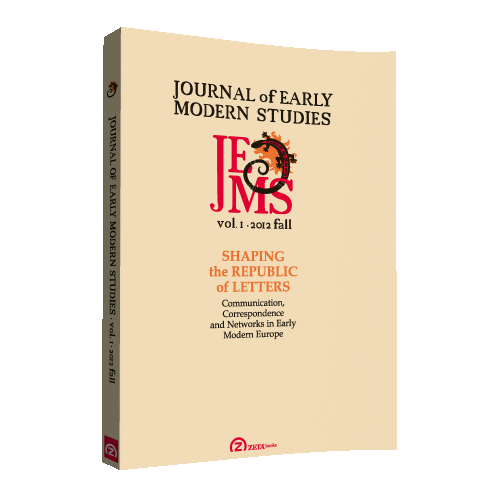On glass-drops: a case study of the interplay between experimentation and explanation in seventeenth-century natural philosophy
On glass-drops: a case study of the interplay between experimentation and explanation in seventeenth-century natural philosophy
Author(s): Mihnea DobreSubject(s): Philosophy
Published by: Zeta Books
Keywords: glass drop; experiment; Robert Hooke; Henricus Regius; Nicholas Poisson; Jacques Rohault
Summary/Abstract: The glass drop is a tear-shaped object with many curious properties. Although having a fragile tail, its main body is hard to break. On the other hand, breaking such a drop produces a loud noise and many very small particles of glass. In the seventeenth century, these objects became the focus of both experimental and natural philosophical investigation. In this article, I examine the ways in which various natural philosophers have dealt with glass-drops. This is neither a complete enumeration of the countless attempts to explain the object and its associated phenomena, nor a search for its origins. Rather, this study offers a glimpse into what was at stake in the inclusion of the glass drop—a new scientific object—into natural philosophy. I shall argue that a full description of the drop and of its properties required both experiment and speculation.
Journal: Journal of Early Modern Studies
- Issue Year: 2013
- Issue No: 1
- Page Range: 105-124
- Page Count: 20
- Language: English
- Content File-PDF

